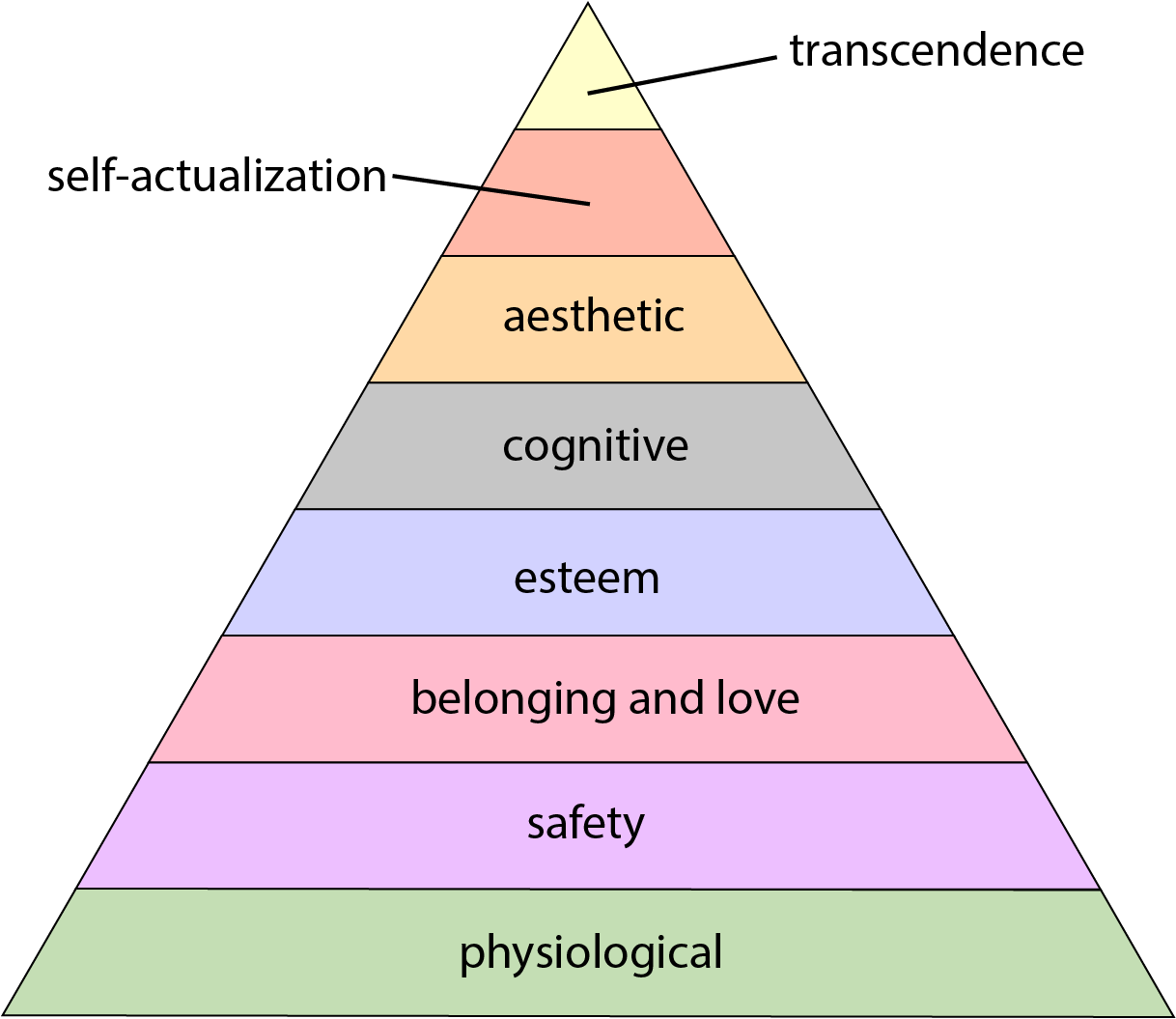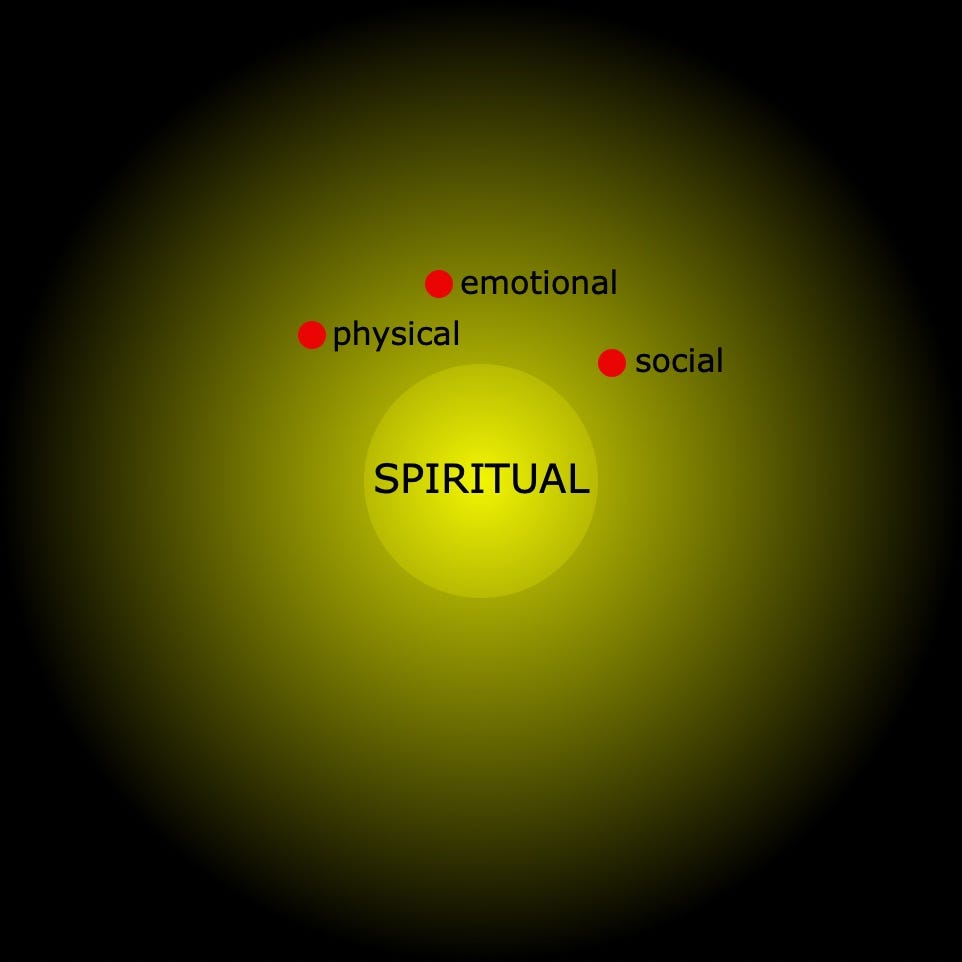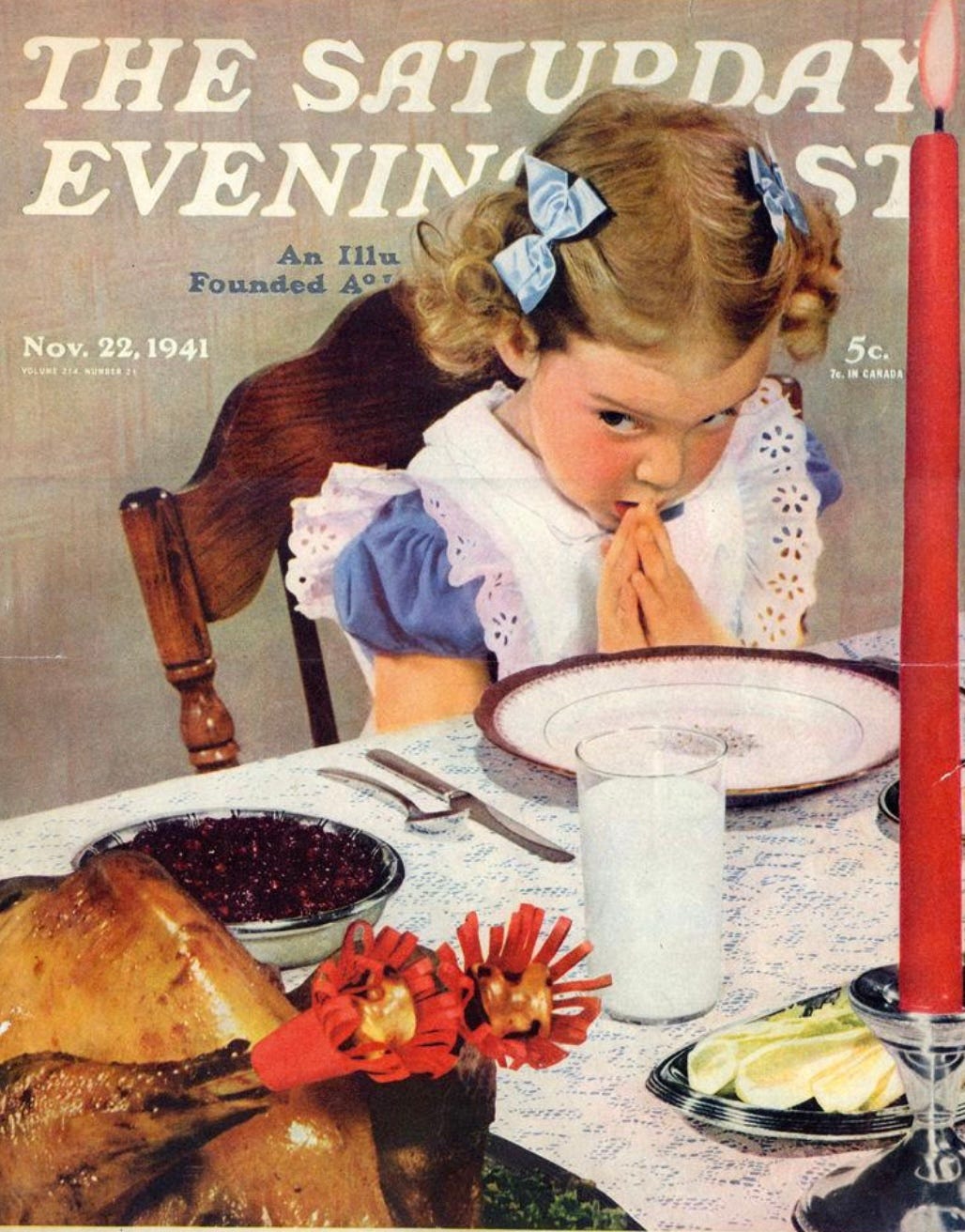The Demise of Meaningful Ritual and the Rise of Totalitarianism
Part 1 of 2: The Demise of Meaningful Ritual
Consider this quote from Hanna Arendt’s Origins of Totalitarianism…
The ideal subject of totalitarian rule is not the convinced Nazi or the convinced Communist, but people for whom the distinction between fact and fiction and the distinction between true and false no longer exist.
Now ask yourself: Why are the facts on my side of the aisle so diametrically opposed to the facts on my opponent’s side of the aisle? Aren’t facts facts, inviolate and independent of perspective? Perhaps the answer is found in this quote from Man’s Search for Meaning by Austrian psychiatrist Viktor Frankl…
It is this spiritual freedom — which cannot be taken away — that makes life meaningful and purposeful.
Perhaps our facts are irreconcilable precisely because we have lost our spiritual freedom. Precisely because we have lost meaning and purpose. Without meaning and purpose facts — like everything else — become trivial and inconsequential.
“There are three kinds of lies,” said Mark Twain. “Lies, damned lies, and statistics.”Without meaning and purpose, facts and statistics are bloodless ephemeral partisans, all equally trivial and inconsequential. The reason we no longer even make an attempt to reconcile them in society today is because we no longer use them to inform ourselves in defense of spiritual freedom as much as we use them to distract ourselves and others from the loss of spiritual freedom.
But how, one might ask, can we lose our spiritual freedom if it cannot be taken away? The answer is almost too unbearable to contemplate: Our spiritual freedom can only be surrendered. It can only be given away. Once gone, we mourn its loss and scramble about to fill the immense psychic hole left behind in our souls. But the results are always the same: Arrogance and false pride rush in to fill the void, and all that emerges is yet another Tower of Babel, yet another shrine to vanity, another chasing of the wind.
Well before we lose the ability to distinguish between true and false in the often long march to totalitarianism, we lose the ability or desire to distinguish right from wrong. We sacrifice our moral and ethical compass to expedience: socio-economic, cultural, political or otherwise. Without the ability to distinguish right from wrong we cannot hope to distinguish true from false. We lose the ability to find direction and meaning in our individual and collective lives. The resulting alienation and isolation from each other is what eventually sets the stage for mass formation psychosis — a mass psychotic break from reality — and the grassroots rise of totalitarianism.
The demise of meaningful ritual and the Revised Hierarchy of Needs…
The mechanics of the above process, the loss of meaning, typically unfurl slowly over time, over years or even — in the case of Western democracies like America — over generations. We lose direction and meaning when the relationships in our lives break down, and the breakdown begins with the mindless erosion of the meaningful rituals that preserve and protect our families, communities and cultures.
Consider that all of our time is spent in relationships with other people and things: family, friends, lovers, work, hobbies, worship, community, our bodies, art, our obsessions and addictions, etc. Each relationship in our lives will contribute to or detract from one or more of four basic needs: spiritual, social, emotional and physical.
The rituals we build around each of the relationships in our lives dictate precisely how, where and with whom we spend our time and money — and how, where and with whom we invest our faith. Those relationships we value most will receive the lion’s share of resources courtesy of the rituals we build around each of them. Those we value less will — eventually — be consigned to table scraps or utter neglect.
The rituals in our lives arbitrage the satisfaction of our basic spiritual, social, emotional and physical needs by simple virtue of the fact that they dictate how, where and with whom we spend almost every waking minute of every day, from when we open our eyes in the morning until we close them again at night. Breakfast, lunch and dinner — all are ritualized. Entertainment and social gatherings, worship and reverence, work, holidays and vacations — all managed and choreographed by an intricate and easily disturbed ritual ecosystem.
In short, rituals are living roadmaps. We unfold and consult them many times each day as we navigate the relationships that weave the fabric of our daily lives. They also change as the things we assign value to — the things we deem worthy of our time and resources — change over the years with circumstance and intent. Functionally, the meaningful rituals in our lives operate as our spiritual, social, emotional and physical auto-immune systems.
Just as we build meaningful rituals to promote and protect our four basic needs, we also build mindless rituals to promote our obsessions and addictions. We become addicts when our mindless rituals replace and supplant the meaningful rituals that defend the quality of our lives. If our addictions don’t plateau, if they are not somehow modified or reversed, they may overwhelm our lives and threaten to destroy our spiritual, social, emotional and physical wellbeing altogether — both as individuals and as societies.
Back in the 1940s, American psychologist Abraham Maslow introduced his Hierarchy of Needs, a psychological classification system often portrayed as ascending tiers in a pyramid (although it could just as easily be portrayed in a linear chart)…
Maslow’s hierarchy is entirely consistent with the mechanically Cartesian worldview and scientific methodology that emerged from the Enlightenment and the Age of Reason. According to Maslow, self-actualization and ultimate transcendence are attainable only by satisfying the needs on the lower tiers — starting with the physiological — one at a time. Almost all of Western medicine and science reflects the same basic mechanical philosophy, as do our systemic approaches to social problems like addiction, crime, mental illness — and war.
But like much of the scientific and technocratic advance that characterized and shaped the entire 20th century, Maslow’s vision is spiritually bereft. Consequently, it reflects the spiritual and scientific worldview of secularized Western democracies: that we are essentially physical beings with occasional spiritual manifestations. But what if the opposite is true? What if we are essentially spiritual beings, born spiritually free, with occasional physical manifestations — a view held by many cultures and religions throughout history?
If so, we would need to redefine and redraw a new hierarchy of needs, one whose first step begins not with the physiological but with the spiritual. The Revised Hierarchy of Needs might look more like this…
In the Revised Hierarchy of Needs, spirituality is like the sun in our solar system: inviolate, self-aware and discrete from the social, emotional and physical needs that orbit like planets around it. Like the sun, it precedes them and will survive them. The light it exudes and the gravitational pull it exerts illuminates, permeates, informs and directs them.
When we close our eyes to the light, however, when we resist the natural pull of our spiritual freedom, our social, emotional and physical selves are cut loose in the darkness to drift mindlessly like the Titanic in the North Sea — victims of the next wandering iceberg. Without spiritual purpose and direction, our social, emotional and physical needs often conflict and collide. We find ourselves reacting to crisis after crisis — most entirely manufactured by our own hands.
In the Revised Hierarchy of Needs the only hierarchal rule is spirituality first. The order with which we address the other basic needs at any given moment is necessarily fluid — subject to circumstance, exigency, the quality of the decisions we make and the rigor of the rituals we devise to protect and defend them. Regardless of what transpires, however, our spirituality remains the anchor tenant, the only critical constituent, and the only one of our four basic needs that cannot be broken down or destroyed. Always shining bright within us, we cannot destroy it, no matter how hard we try. It can only be forsaken or surrendered.
The modern historical record is clear: the quality of life in post-industrial society suffers in the absence of the sacred. When churches, synagogues and mosques fail — even in the 21st century — families and communities suffer dire consequences, spiritual and material. In the end, the meaningful rituals we build to promote and maintain our spiritual wellbeing constitute our best defense against the accelerating decay in the quality of our social, emotional and physical lives as well. The rest of Part I is about what happens when we surrender just two of them…
From my essay, Herald the Apostates of the Liberal World Order:
Not long after the printing press destroyed Western theocracies, not long after the Enlightenment and Age of Reason gave birth to the scientific method and the American, French and Industrial revolutions, Friedrich Nietzsche declared God dead. The very next day we looked up to the heavens and said, in so many words, “Thanks, but no thanks. We’ll take it from here.” In the absence of the sacred, the 20th century that followed was murderous beyond comprehension.
It was also revelatory and liberating. The Liberal World Order that rose like a phoenix from the ash and charnel houses of World War II was, in many ways, the real-world manifestation of a bright and blinding utopian vision. It described a new world order wherein democracy, free trade, universal human rights, collective security and respect for the environment would ascend in the penumbra of secular institutions grounded not in religious superstition but in the unassailable foundations of science and technology. It worked wonders: for a while at least, democracy flourished and billions were lifted from the misery of crippling poverty.
The rise of the Liberal World Order after World War II was a triumph of science and technology and democratic ethos over the vestigial remnants of theocratic superstition. Surely we had fulfilled the Enlightenment objective to devise a more humane form of governance to replace the theocratic autocracy long since declared dead by Nietzsche. After all, who needed God in a data-driven consumer society with Netflix, Amazon, and Uber Eats?
Demise of the family dinner table and the sabbath day…
It seemed innocent enough at the time, but the confluence of frozen foods and television in the mid-1950s changed everything. The dinner table — once the primary meaningful ritual to protect the spiritual, social, emotional and physical integrity of our families and communities — was suddenly under attack from powerful corporatist forces fronted by credentialed on-air experts, two-dimensional authorities who appeared on our black-and-white TV screens every evening at dinner time without fail. They were only the most visible harbingers of what would also become, within the next few generations, the most reliable and most entertaining extension of state power in our lives and homes.
Within the next two generations, the family dinner table — once the ritualized font of daily family prayer, nutrition, love, laughter, tears and actionable local news about each other, our friends, and our communities — would be on life support, replaced by fast-food meals of dubious nutritional value consumed either on the run or in front of a screen. All but gone was the daily family prayer. All but gone was the care, love, nutrition and power of a home-cooked meal. All but gone was the daily family time spent together and the meaningful local news it conferred about our families, neighborhoods and communities. All that remained were empty spirits, empty calories, empty headlines and increasingly profound isolation: a Faustian deal by any measure.
I once asked a dear friend if the Jews keep the sabbath or the sabbath keeps the Jews. His response was immediate and unequivocal: “As the single most critical ritual of Judaism,” he told me, “the sabbath keeps the Jews.” Then, almost as a postscript: “The Jews cannot survive without it.”
Neither can the rest of society. The sabbath day is not only about setting aside a day of rest each week to decompress from the pressure and stress of day-to-day life. Nor was it delivered as the Fourth Commandment solely to reaffirm the primacy of God enumerated in the first three. The sabbath day brings us together each and every week to reassert the common good: the local sanctity of our families and communities.
The same fate that afflicted the family dinner table beset the sabbath day of rest and contemplation as mothers and wives, liberated in the 1960s by feminism and the pill, joined the workforce by the tens of millions in the 1970s and 80s. Suddenly gone from the home were the primary gatekeepers and arbiters of quality, not to mention the corporeal keepers of the sabbath.
Concurrently, the rise of the microchip — and the electronic spreadsheet, the mamaloshen of the emergent Wall Street culture — supercharged the consumer economy. To fill the gap created by explosive digital scale powered by a vastly expanded workforce and billions of microchips, corporate America — including and especially commercial media — opened its doors 24 hours a day, seven days a week.
The sabbath day of rest, along with the spiritual and local nexus it provided for families and communities, was sacrificed to the distant wolves of Wall Street — best characterized by the meteoric ascent of a supremely educated new class of professional elites, technocrats of the highest order. We called them MBAs, and they would soon conquer the world.
Meanwhile, all but gone was the small-town quietude and still of the sabbath day. In decline were the spiritual rituals that offered congregational succor, prayerful gratitude, humility and a higher call to community service. Absent was the one day each week that offered spiritual meaning, contemplation and sustenance — replaced instead by an implacable and insatiable commercial sameness fashioned in the frenetic pursuit of false idols like the NFL, fast food and the mall. As with the demise of the family dinner table, more emptiness and more isolation ensued: again, a Faustian deal by any measure.
Together, the family dinner table and the sabbath day once protected and promoted the spiritual, social, emotional and physical wellbeing of our families and communities. We will revisit them shortly in part 2 of this essay: The Rise of Totalitarianism. For now just know that their demise — and the demise of meaningful ritual across all of our basic needs — not only continued unabated through the end of the 20th century, but actually accelerated in the 21st.
The collapse of meaningful ritual — and with it the collapse of institutional America — was imminent. The elitist visions of default addiction and too big to fail were the replacement plans, and they were about to unfold in spectacular fashion, unimpeded by the inconvenience of meaningful ritual…











The power of the Holy Spirit brings healing and the miracle of the loaves and fishes. With spirituality all needs are provided. Man does not live by bread alone but by every word of God. Amen.
I know this is not articulate, but you da man